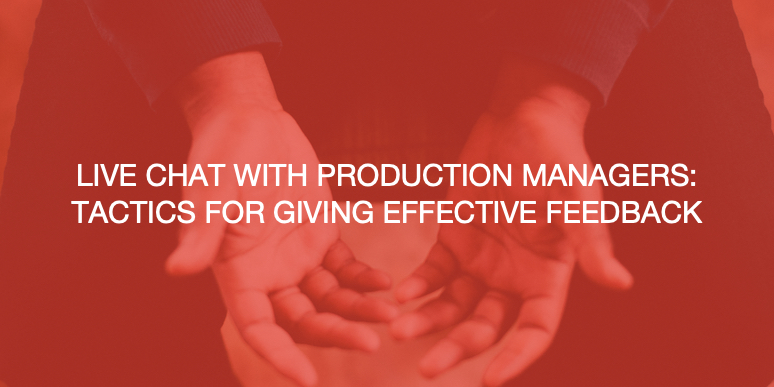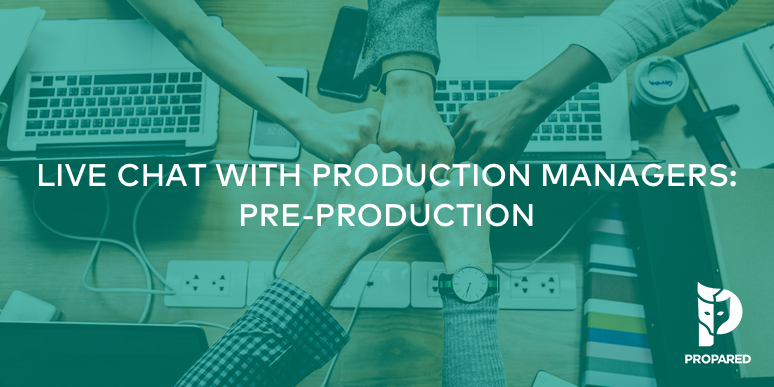
It’s conference season! That means two things. One, I’m writing this from a hotel room (I’m in Salt Lake for USITT). And two, I get to hear a lot about resume building, portfolio review, job interviewing techniques, etc. It made me want to share a few thoughts.
There’s a lot of bad advice floating around. It makes me cringe when I hear it. It’s not that the advice-givers are wrong (at least not always). There’s definitely some good wisdom out there and plenty more good intentions behind it. It’s just that often, the focus is pointed in the wrong direction.
Too much emphasis is put on crafting the resumé and not enough on building strong relationships with colleagues. And as an employer, it can be frustrating to come across a lot of people who are no doubt talented but lack the understanding of what it truly takes to get hired. To get work, you must understand the mindset of people who do the hiring. Let me be your guinea pig.
I’ve been hiring people for 11 years. During that time, I haven’t much altered how I do it. Also during that time, I’ve met a lot of other production managers, shop owners, and various other event industry pros. And the VAST majority of them hire the same way I do. Here’s how it breaks down.
The Three Tiers of Hiring

Tier 1
The first people I’m going to call when staffing a show are people with whom I’ve already established relationships. When I’m working on a production, every person on site has a job to do and I need to trust him or her to do that job. Trust is the single most important factor in my hiring process. Can I trust that my hires will work hard and conduct themselves well on site?
Tier 2
If everyone I know directly is booked, I’ll turn to my colleagues for recommendations. Generally, they won’t send me someone who could make them look bad. I can almost guarantee I’ll fill at minimum 90% (if not 100%) of my staffing needs with smart, talented, responsible people from these two sources.
Tier 3
It’s only after I’ve exhausted my prior options that I’ll start thinking about cold resumés. I’ll take some time and explore potential hires with whom I haven’t been able to easily make a connection (through a colleague, work, etc.). Sound harsh? I don’t mean it to be. It’s simply the reality. In fact, most industries work the same way. It’s just that not enough is done to educate people entering the workforce about the right places in which to focus their energy.
What You Should Do
Your job is to get yourself into Tier One or Two. Over and over again until it becomes a non-issue. There are plenty of ways to do it.
Find Internships and Intensives
Many companies run programs to accelerate your entry into the business. My production company runs several intensives throughout the summer festival season. Spend some time researching your options and start submitting! Often, these are the first Tier One contacts you’ll make.
Get Out and Meet People!
Conferences like USITT are great. What better place can you go where the whole purpose is to bring together the best of the best in the industry? From companies looking to hire, to graduate programs, to classes and learning opportunities, you have your pick. Of course, conferences can be pricey when you factor in travel, accommodation, passes, etc. So start local. Are there networking groups you can join? A quick search of Facebook groups for “stage manager” produces dozens of results. Everything from national organizations to local chapters and meetups. What better way to build trust then getting to know your future colleagues on a personal level?
Oh, and keep up with these people! You never know who’ll be your “in” for a gig.
Finally, the Resumé (and the Cover Letter)
Resumés are part of the puzzle but only a small part. One that is much smaller than I think most young professionals are led to believe. Of course, when first starting out, a resumé is the most polished document you have. So it needs to focus on the elements that are likely to gain you the trust of potential employers.
That is, references, references, references. Focus on WHERE, WHEN, and WITH WHOM you’ve worked. Don’t worry as much about the show itself. Me knowing that you’ve done Othello tells me very little about your abilities. Where you work, when, and with whom provides me all the tangible details I need to make a connection. (e.g., “So and so worked at xxx company at the same time so I can call him and find out about you!”)
One bonus tip. I know a lot of people who spend a ton of time formatting their resumé so it is “eye-catching.” Don’t stress out over this. If it’s readable and the details are solid, you’re in good shape.
I hope this helps. I’ve met a lot of really talented people who deserve to get hired and establish long, healthy careers. The key to jumpstarting that is by focusing on your relationships. Use your resumé but don’t let it take over the more important work of building trust among employers.
Employers – what is most important to you in hiring new production managers and staff? Share your thoughts in the comments below.



